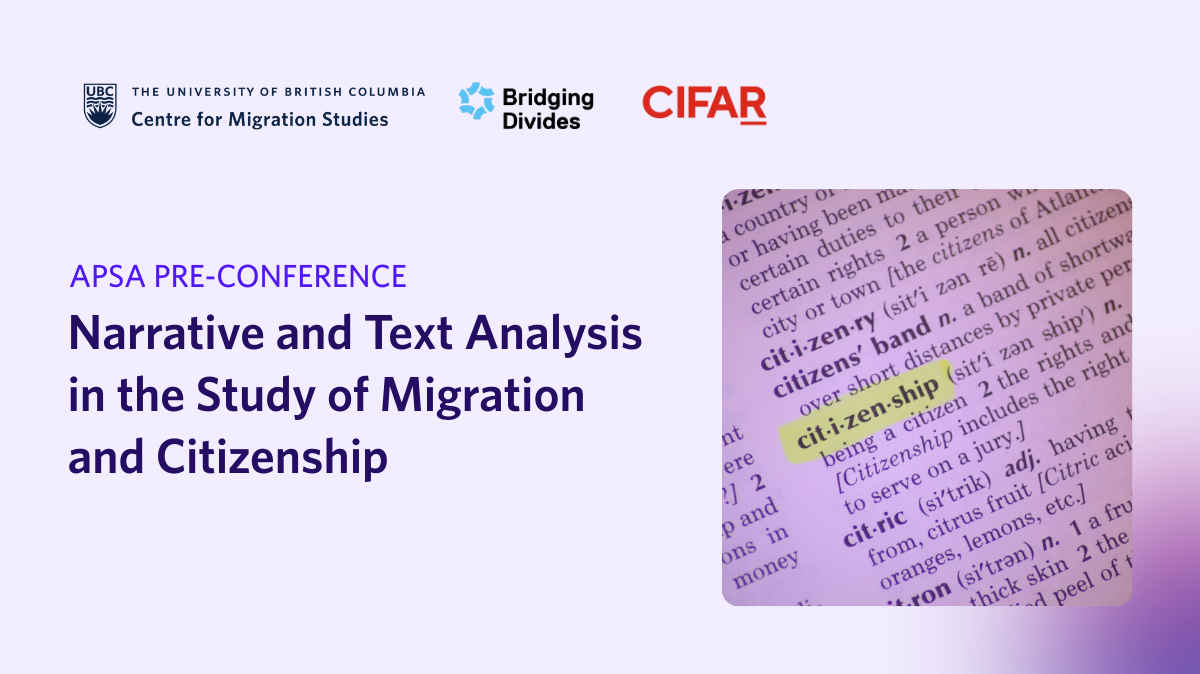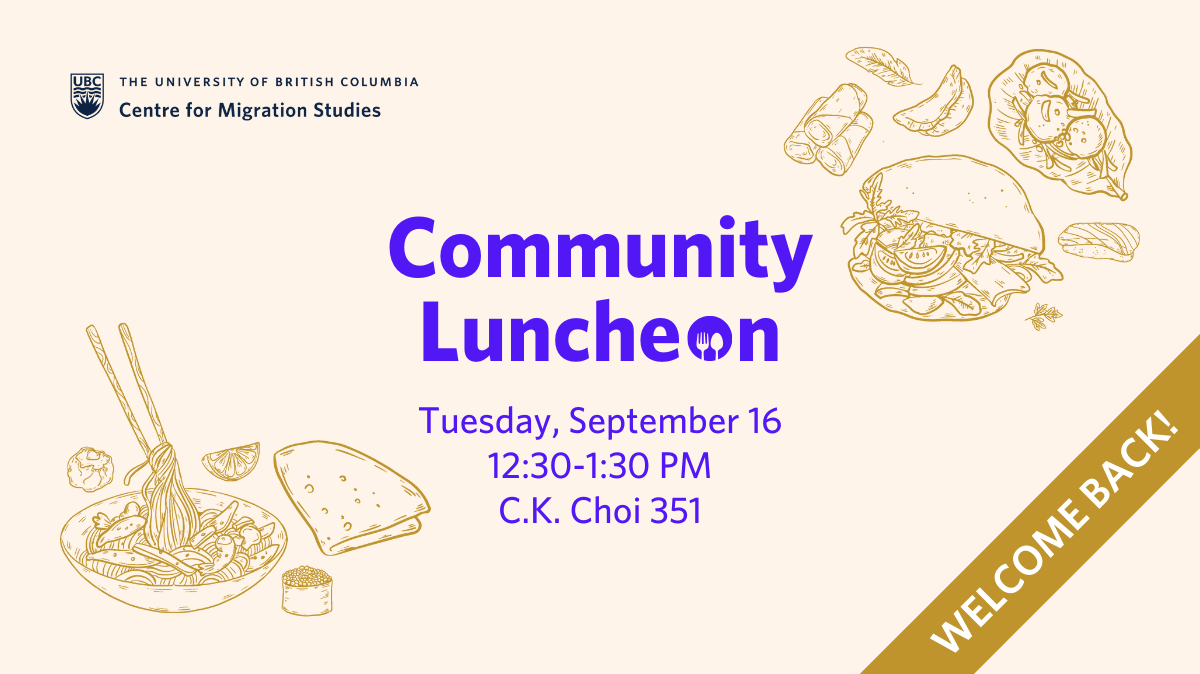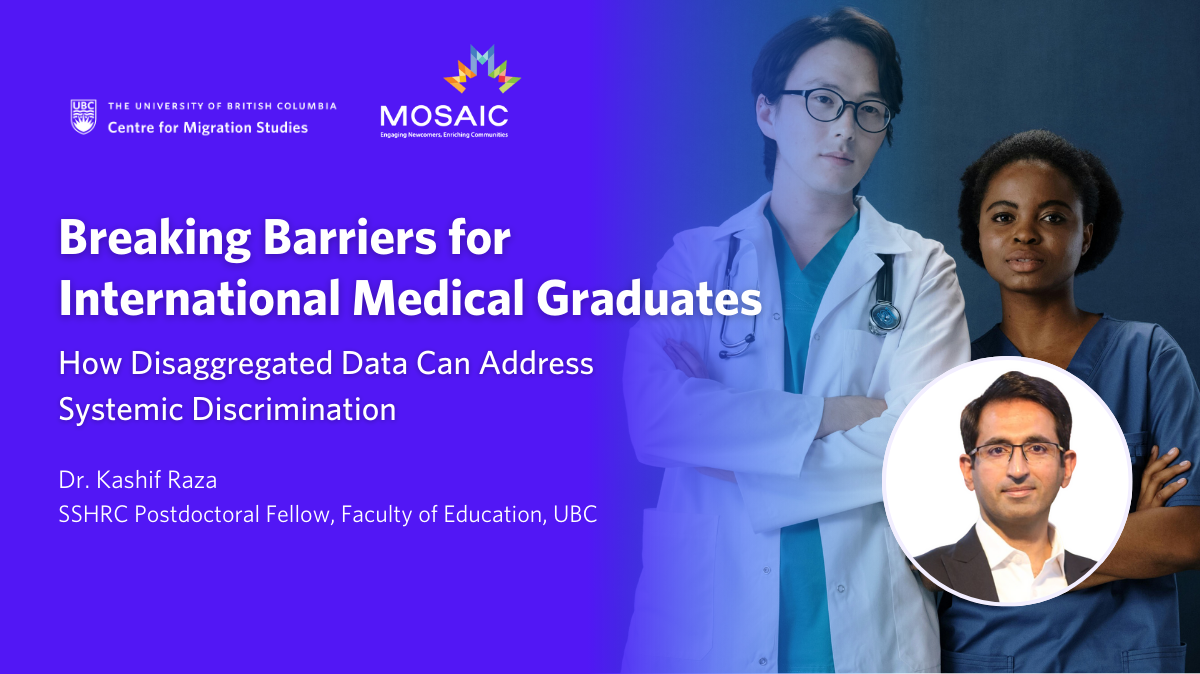Immigrant Integration During and After the Covid-19 Pandemic: Government and NGO Plans to Support Integration Success
Co-sponsored by the University of British Columbia (Killiam Connection Award program and the Centre for Migration Studies), The Immigrant Employment Council of British Columbia, The Migration Policy Institute’s National Center on Immigrant Integration Policy, AMSSA (Affiliation of Multicultural Societies and Service Agencies of BC).
November 1, 20219:00am – 13:00pm— Pacific Time (PT)Location: UBC Robson Square TheatreTo register for in-person or online attendance, please fill out the form below.In-person attendance will be limited to comply with BC Public Health Regulations.
Context and Background
Marco Mendicino, the Minister of Immigration, Refugees, and Citizenship Canada, has announced ambitious goals for immigration to Canada for 2021-23, with a target of over 400,000 arriving this year and in each of the next two years. As the Canadian economy recovers and as borders reopen, the number of temporary migrants will also increase dramatically from the interruption caused by the COVID-19 pandemic. It is quite possible that Canada will see unprecedented numbers of international students and temporary workers in the next few years, along with potentially large numbers of refugees from Afghanistan and an unprecedented scale of permanent immigration. Moreover, the separation of newcomers into temporary and permanent residents has become less distinct during the COVID-19 pandemic, as the number of asylum seekers, temporary workers, and international students who have been granted permanent residence has become more significant.
Immigrants, refugees, and temporary migrants arriving over the next few years will spread themselves across the country but will be particularly concentrated in Ontario, British Columbia, Quebec, and Alberta and, especially, in the metropolitan areas of these provinces. In this Symposium, a particular focus will be placed on the Lower Mainland of British Columbia as key issues are considered, including how the pandemic affected immigrant families, the scale of migration / immigration, and the nature and scope of integration initiatives more broadly, as well as how the potential shift to much higher numbers of newcomers in the immediate future can be best supported by existing and enhanced services.
This half-day Symposium features two panel discussions that will provide perspectives of government and NGO leaders from Canada and the U.S., exploring planning efforts as well as the opportunities and challenges today’s historic confluence of circumstances pose for integration efforts. Audience discussion and participation will be facilitated through a variety of electronic and other modalities during the panel discussions and final comment and reflection period.
Agenda
8:30-9:00 Coffee/refreshments available
9:00-9:15 Welcome and Event Overview
9:15-10:30 Panel: Fostering Economic Opportunities for Diverse Newcomer Youth and Adults
Economic integration supports for migrants have long existed in Canada and the U.S. to meet needs such as workplace language instruction, qualification recognition, job search skills and connections, and training for high demand fields. However, questions of how to best adapt and/or expand economic integration efforts loom large with the pandemic’s economic impacts being severe and yet uneven across employment sectors, and longer-term impacts uncertain but also expected to be severe in some sectors. Key stakeholders and actors involved in supporting economic advancement of migrants and other populations will discuss the COVID-19 pandemic’s economic impacts and their implications for migrant communities and employers, while also addressing specific strategies for supporting youth and recent arrivals as they face a changing workplace and economy.
Participants:
- Patrick MacKenzie, CEO, Immigrant Employment Council of British Columbia
- Erin Roth, Deputy Assistant Secretary, Division of Workforce Development and Adult Learning, Maryland Department of Labor
- Queenie Choo, CEO, SUCCESS
- Anastasia Chyz-LeSage, Director, Settlement Network – British Columbia / Yukon, IRCC
Moderator: Professor Dan Hiebert, UBC
10:30-10:45 Break
10:45-12:00 Panel 2: Community and Government Roles and Partnerships in Welcoming and Supporting Integration Success
Community and government leaders play critical roles in bridging newcomer and settled populations through welcoming and inclusion initiatives and an array of policies and programs designed to support upward integration trajectories for immigrants and their family members. With the pandemic affecting numerous aspects of individual and community well-being—including schooling, physical and mental health, employment, civic life and social relations—many policymakers and community and agency leaders are attempting to nimbly address new and lingering COVID impacts while also revamping their approaches as part of recovery efforts that aim to ‘rebuild stronger’. This session will explore challenges and opportunities seasoned government and community actors see in this moment, and the ways in which they are organizing their efforts—and the eco-systems in which they operate—to respond as effectively as possible to them.
Participants
- Carling Helander, Executive Director, Immigration and Policy Integration, BC Ministry of Municipal Affairs
- Cuc Vu, Director, Office of Immigrant and Refugee Affairs, Seattle
- Kathy Sherrell, Director, Settlement, ISS of BC
- Sherman Chan, Mosaic
Moderator: Margie McHugh, Director, MPI National Center on Immigrant Integration Policy
12:00-12:15 Closing Remarks, Katie Crocker, CEO, AMSSA
12:15-12:30 Final Comment and Reflection Opportunities
12:30 Lunch


